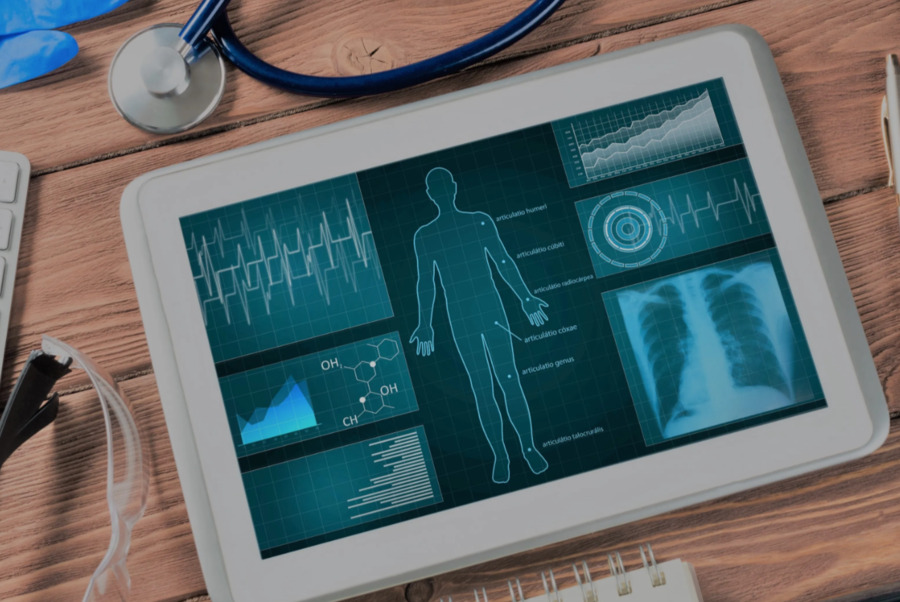In the fast-evolving landscape of modern healthcare, the integration of cutting-edge technology has sparked a digital revolution, fundamentally reshaping the delivery of medical services. From enhanced patient interaction to streamlined workflows and increased productivity, the digitalization of medicine has brought about transformative changes across the entire healthcare ecosystem. This article explores the multifaceted benefits and advancements of digital transformation in medical services, shedding light on its profound impact on patient care, operational efficiency, and healthcare outcomes.
Enhanced Patient Interaction
One of the hallmark benefits of digitalization in healthcare is the facilitation of enhanced patient interaction. Through the implementation of digital platforms such as patient portals, mobile applications, and telemedicine tools, healthcare providers can engage with patients in more meaningful and accessible ways. Patients now have the ability to schedule appointments, access medical records, and communicate with healthcare professionals remotely, breaking down geographical barriers and improving accessibility to care. Furthermore, personalized health information, medication reminders, and educational resources empower individuals to take an active role in managing their health, leading to improved patient outcomes and satisfaction.

Secure Databases
Digital transformation in healthcare entails the creation of secure databases to safeguard sensitive patient information while ensuring compliance with stringent privacy regulations. Advanced encryption techniques, robust authentication mechanisms, and stringent access controls are employed to protect electronic health records (EHRs) from unauthorized access or data breaches. Cloud-based storage solutions offer scalability, flexibility, and redundancy, enabling healthcare organizations to securely store and access patient data from any location with internet connectivity. By centralizing medical records in secure databases, healthcare providers can streamline administrative processes, reduce paperwork, and enhance data integrity, ultimately improving the quality and efficiency of patient care.
Increased Accuracy
Digitalization enhances the accuracy of medical processes through the automation of tasks and real-time data analytics. Electronic health records (EHRs) replace traditional paper-based systems, reducing the risk of errors associated with handwritten notes and enabling healthcare providers to access comprehensive patient information instantaneously. Integration of barcode technology and radio frequency identification (RFID) systems further improves accuracy in data collection and inventory management, minimizing medication errors and ensuring efficient supply chain logistics. Moreover, predictive analytics and machine learning algorithms analyze large datasets to identify patterns and trends, aiding in clinical decision support and disease management. By harnessing the power of digital technologies, healthcare professionals can deliver more precise diagnoses, personalized treatment plans, and proactive interventions, ultimately improving patient outcomes and reducing healthcare costs.
Simplified Data Management
Digital transformation simplifies data management processes, reducing the administrative burden on healthcare professionals and optimizing workflow efficiency. Automated documentation systems eliminate manual paperwork, allowing doctors and nurses to focus more time on direct patient care. Mobile applications and telemedicine platforms facilitate remote monitoring and teleconsultations, enabling healthcare providers to deliver timely interventions and follow-up care. Furthermore, interoperability standards enable seamless exchange of patient information between different healthcare systems, enhancing care coordination and continuity across various care settings. By streamlining data management processes, digitalization enables healthcare organizations to operate more efficiently and deliver higher quality care to patients, ultimately improving patient outcomes and satisfaction.
Increase Productivity

Studies have shown that digital transformation in healthcare leads to increased productivity and efficiency within healthcare organizations. By leveraging advanced technologies such as artificial intelligence, robotics, and Internet of Things (IoT) devices, healthcare providers can automate repetitive tasks, optimize resource allocation, and reduce operational costs. For instance, wearable health monitoring devices and remote patient monitoring systems enable proactive disease management and early intervention, reducing hospital readmissions and healthcare expenditures. Telemedicine platforms expand access to healthcare services, particularly in rural or underserved areas, overcoming geographical barriers and enhancing patient engagement. By harnessing the power of digital innovation, healthcare organizations can achieve significant gains in productivity while improving patient outcomes and satisfaction.
Conclusion
The digitalization of healthcare services represents a transformational shift in the healthcare industry, opening up unprecedented opportunities for innovation, efficiency, and patient care. From improved patient engagement and secure data management to increased accuracy and productivity, digital technologies are revolutionizing the delivery of healthcare services. As healthcare organizations continue to embrace digital transformation, they must prioritize cybersecurity, interoperability, and usability to ensure seamless integration and adoption of digital solutions. By harnessing the power of technology for seamless customer journey management from Aristostar, healthcare providers can achieve positive results while dramatically reducing their costs.

Fixie owner, self-starter, audiophile, Mad Men fan and storyteller. Working at the crossroads of beauty and computer science to create great work for living breathing human beings. Let’s chat.


